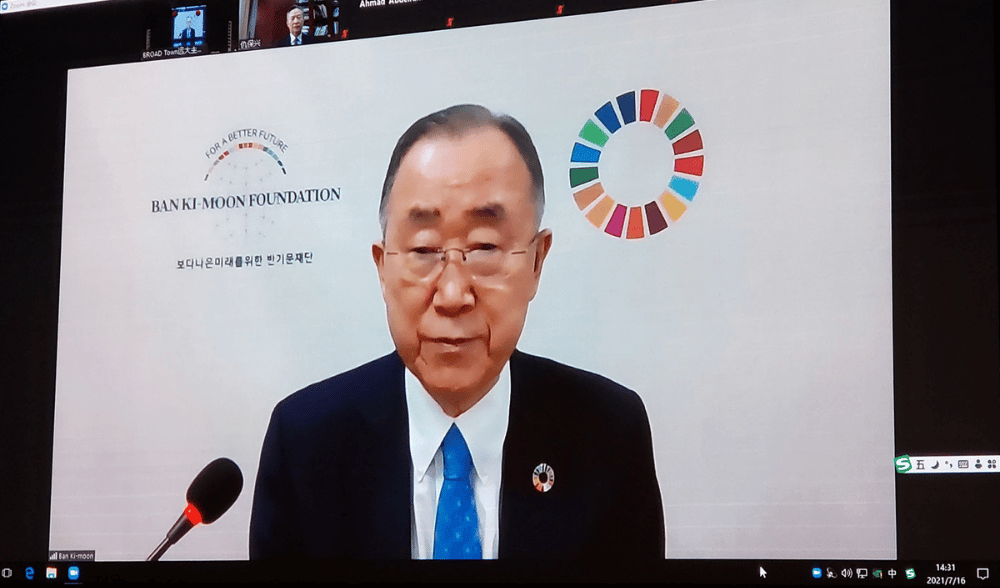BY THE AMI STAFF – The Asian and Asian-American Studies professor’s ‘Future of the United Nations’ course is not the usual kind of university class. There is no extended lecture, and the enrolled students do much of the talking. That’s because the design for this experimental course empowers them as delegates representing the various members of the United Nations Security Council. Their assignment is to propose, debate and then either pass (or not-pass) detailed security-council resolutions on current international crises.
The professor (Tom Plate, clinical professor in LMU’s Bellarmine College of Liberal Arts) sits with these 15 ‘delegations,’ acting as the UN secretary-general, helping to guide, before semester’s end, the difficult and detailed resolutions to up-or-down conclusions, one way or the other.
Except recently – in fact, just this November 16. That night here in Los Angeles, the professor, usually acting as UN secretary-general, happily gave way to a man exponentially more qualified to play that role: Ban Ki-moon, the 8th secretary general of the UN, who by way of a Zoom connection from his office in Seoul offered students his views and perspectives on issues ranging from UN Security Council reform to increasing tensions on the Korean Peninsula.

This accomplished and well-known career internationalist had served as South Korean foreign minister before winning two five-year terms (2007-2016) as the UN’s top diplomat and chief executive. Now retired from the UN, Ban was not shy about laying out his views for the note-taking students. He described our present time as “an unprecedented era of crisis”, when, sadly, “the prestige of the UN is going down and down.” If the ongoing global climate negotiations flounder, he said, “there is no Plan B… there just is none.”
The only answer to the current crises, whether the heightened risk of nuclear warfare or the evidently growing fallout from global warming and environmental degradation, he said, is to challenge national leaders to abandon parochial perspectives and ask: “Are you willing to do something for global peace?”
This “matter of political will,” continued Ban, is the only conceivably effective response to the “global political crisis” that has led to the current “global humanitarian crisis.” We are “living on a very small planet,” and “in this very troubled world,” as Ban passionately put it to the LMU students, we are all facing “a big fight and battle for climate change.”
Drawing on inspiration from his own unforgettable high-school experience when he along with other traveling international students met President John F. Kennedy at a reception in the Rose Garden of the White House and Ban thereupon settled right then on a career in international diplomacy, the former SG urged the dozen LMU-AAAS seminar students to be ready to make individual lifelong sacrifices and function as lifelong committed “global citizens” to fight for a better world.
The former secretary general, now heading two nonprofit Asia-based foundations (Ban Ki-moon Foundation for a Better Future, the Ban Ki-Moon Center for Sustainable Development), was extended the transpacific speaking invitation by AAAS Professor Tom Plate, LMU’s distinguished scholar of Asian and Pacific Studies, and the author of the 2012 book ‘Conversations with Ban Ki-Moon: What the United Nations Is Really Like – The View from the Top.”
In 2016, Ban was awarded an Honorary Doctorate of Humane Letters by Loyola Marymount University, which now rests in his office shelf, surrounded by other high-level awards granted by other high-level institutions around the world. Said LMU UN Security Council ‘President’ Jonathan Hainey, an LMU senior and English major: “With any set of looming interrelated international crises, it’s vital to have the input from a primary participant. We did. It was great.”

